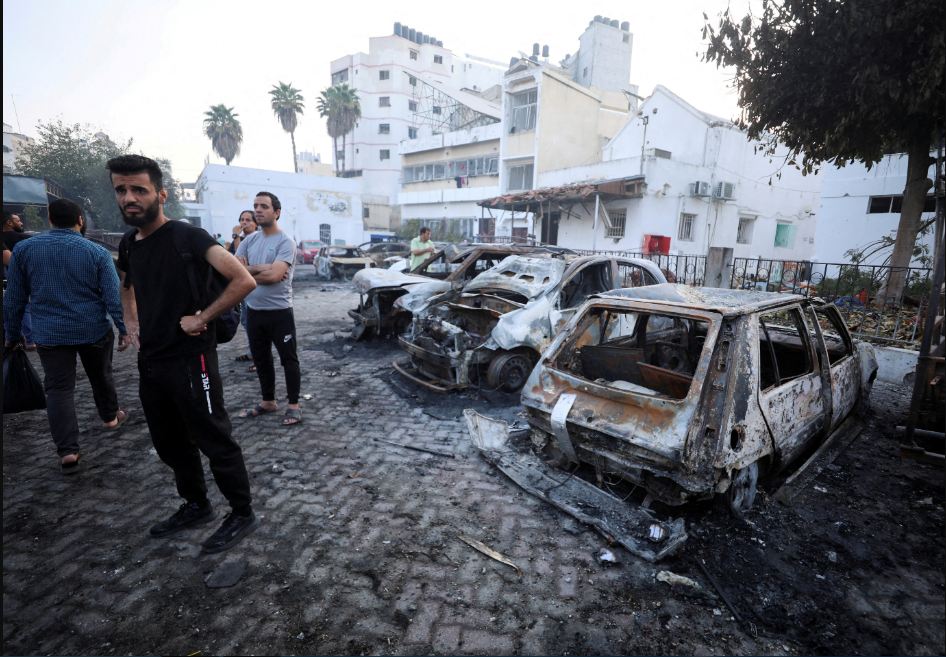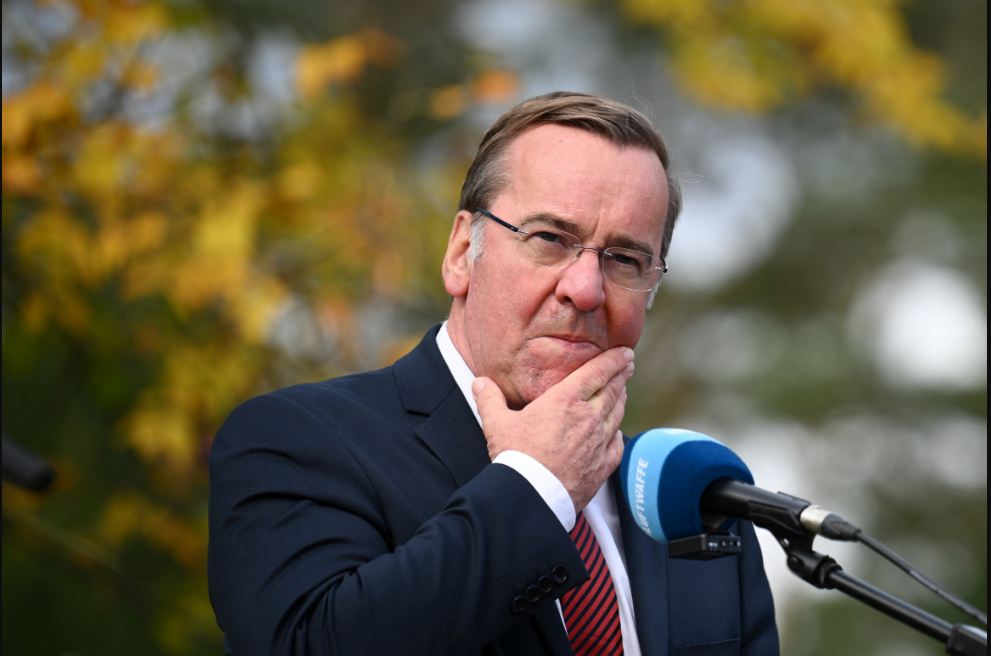Arabs condemn Israel’s Gaza bombardment, urge fresh peace push
Cairo (Reuters) – Arab leaders at a Cairo summit condemned Israeli bombardment of Gaza as Europeans said civilians should be shielded, but the absence of Israel and senior U.S. officials at the meeting undermined any prospect for halting an escalating war.
Leaders and foreign ministers were meeting as a two-week conflict in neighbouring Gaza raged on, amid growing concern in many countries at an unfolding humanitarian catastrophe in the blockaded enclave that is home to 2.3 million people.
Arab states said it was time to restart efforts to end a decades-long cycle of violence between Israelis and Palestinians, which flared once again on Oct. 7 when Palestinian group Hamas launched a deadly assault on Israeli soil and Israel responded with a devastating counteroffensive on Gaza.
The United States, Israel’s closest ally and a vital player in all past peace efforts in the region, only sent the charge d’affaires of its Cairo embassy and Israel was entirely absent. Diplomats said a joint summit declaration was unlikely.
Jordan’s King Abdullah denounced what he termed global silence about Israel’s attacks, which have killed thousands in Hamas-ruled Gaza and made over a million homeless, and urged an even-handed approach to the Israeli-Palestinian conflict.
“The message the Arab world is hearing is that Palestinian lives matter less than Israeli ones,” he said, adding he was outraged and grieved by acts of violence waged against innocent civilians in Gaza, the Israeli-occupied West Bank, and Israel.
Palestinian President Mahmoud Abbas said Palestinians would not be displaced or driven off their land.
“We won’t leave, we won’t leave,” he told the summit.
Israel has vowed to wipe the Iranian-backed Hamas militant group “off the face of the earth” over a shock Oct. 7 assault on southern Israel that killed 1,400 people, the deadliest Palestinian militant attack in Israel’s 75-year history.
It has said it told Palestinians to move south within Gaza for their own safety, although the coastal strip is only 45 km (28 miles) long and Israeli air strikes have also hit the south.
French Foreign Minister Catherine Colonna told the summit a humanitarian corridor was needed to deliver aid to civilians, which she said could lead to a ceasefire.
Germany said Israel’s fight against Hamas must be carried out with due concern for the humanitarian situation in Gaza and Britain urged the Israeli military to respect international law and show restraint.
Ceasefire
The meeting was looking into ways to head off a wider regional war. But three diplomats said it was unlikely there would be a joint statement because of sensitivities around any calls for a ceasefire, and whether to include mention of Hamas’s attack and Israel’s right to defend itself.
Hamas’ backer Iran did not attend the summit.
The absence of some Western leaders has cooled expectations. German Chancellor Olaf Scholz, British Prime Minister Rishi Sunak and French President Emmanuel Macron did not attend.
The summit comes as Israel prepares for a ground assault on Gaza with more than 4,100 Palestinians killed so far.
Arab states fear the offensive could drive Gaza residents permanently from their homes and even into neighbouring states – as happened when Palestinians fled or were forced from their homes in the 1948 war following Israel’s creation.
Egyptian President Abdel Fattah al-Sisi said his country opposed what he called the displacement of Palestinians into Egypt’s largely desert Sinai region, adding the only solution was an independent Palestinian state.
Egypt fears insecurity near the border with Gaza in northeastern Sinai, where it faced an Islamist insurgency that peaked after 2013 and has now largely been suppressed.
Jordan, home to many Palestinian refugees and their descendants, fears a wider conflagration would give Israel the chance to expel Palestinians en masse from the West Bank.
King Abdullah said forced displacement “is a war crime according to international law, and a red line for all of us.”
Shortly before the summit opening, trucks loaded with humanitarian aid began entering the Rafah crossing into Gaza. Egypt has been trying for days to channel humanitarian relief to Gaza through the crossing, the one access point not controlled by Israel.



